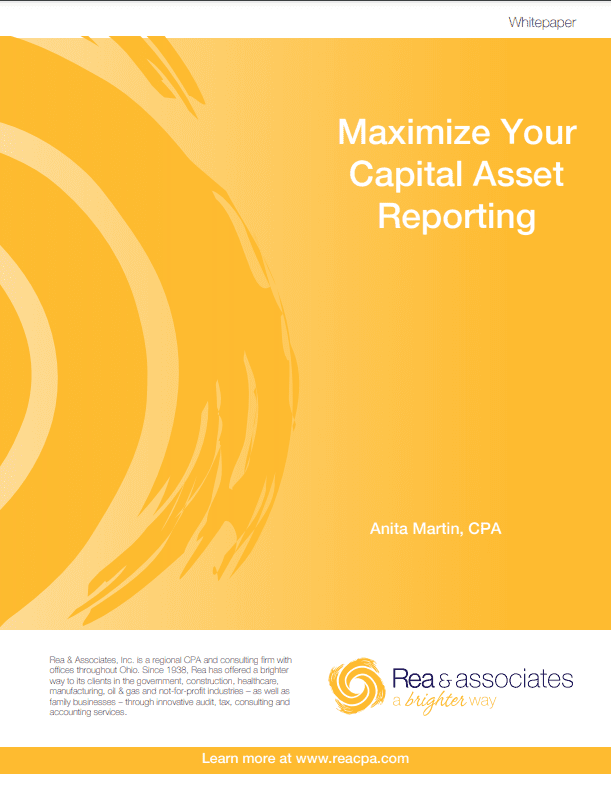Do you have assets that continue to be used well beyond a single reporting period, such as land, land improvements, buildings, furniture and equipment, infrastructure (including roads, water and sewer lines), and construction in progress? Then you have capital assets; which means there are special reporting requirements you should be aware of.
Download The Whitepaper: Maximize Your Capital Asset Reporting

What’s Inside:
Are Your Ledgers Telling You Something?
When it comes to identifying your capital assets, start by reviewing your expense ledgers – particularly the funds and accounts you typically use to make capital asset purchases. Here are some tips:
Don’t overlook professional service expenses
Just because your construction project hasn’t started, doesn’t mean you have no construction in progress to report. All architect and engineering services should be capitalized, including design services, construction manager fees, etc.
Watch out for direct vendor payments
Instead of issuing your own checks, another entity may be paying the vendor on your behalf (the Ohio Public Works Commission, the Ohio Water Development Authority or the Ohio Facilities Construction Commission for example). If this is the case, remember to record the payment in your ledgers as memo journal entries. They will be reported as an equal amount of revenue and expense and are typically capitalized for GAAP reporting.
Account for all your dept
Don’t forget to review all new debt agreements over the last year, as most debt is associated with capital assets. Review all new lease agreements to determine whether they are a capital or operating lease. Your financial advisor can help you determine the classification. If your lease pertains to a capital asset, you will need to capitalize the asset at the total principal amount of the lease.
Mind the minutes
Did your governing board approve any large contracts or donations of capital assets over the last year? Review your meeting minutes to make sure you didn’t miss anything. Since cash doesn’t change hands in these types of transactions, they will not show up in your ledgers, but they still must be reported.
By Anita Martin, CPA, (Medina office)
